Karma Drubgyu Thargay Ling is situated at Tilokpur in Himachal Pradesh, northern India. Their lineage comes from the great Indian Yogi Tilopa (988-1069 CE) and was passed on to Naropa, Marpa, Milarepa, and to His Holiness the Seventeenth Karmapa.
The nunnery is built near the cave of Tilopa, who meditated there for 12 years and attained enlightenment. The cave is located above a river and is a place of pilgrimage for Tibetan Buddhists.
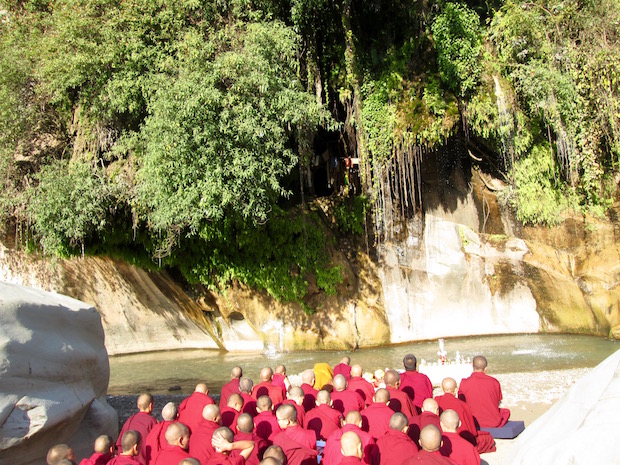
The nuns perform a puja on the riverbank opposite the cave of Tilopa.
Karma Drubgyu Thargay Ling is the oldest Kagyu nunnery outside of Tibet. It provides housing and education to over 100 nuns and overlooks a small town in the lush foothills of the Himalayas of Himachal Pradesh in northern India. The nunnery is about 40 kilometers from Dharamsala and is near the highway from Mandi to Pathankot.
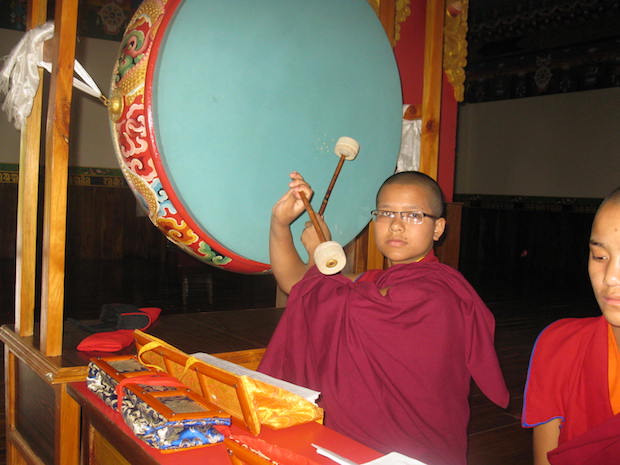
A young Tibetan Buddhist nun takes part in a puja at the nunnery. The nuns have been practicing new pujas as well as the damaru (drum) and bells as they work to improve their ritual skills such as chanting and the use of different musical instruments.
There are two branches of Tilokpur Nunnery. The older compound, called Karma Drubgyu Thargay Ling, is now home to about 20 senior nuns who engage in intensive meditation practices and perform daily prayers. It is also home to 11 of the nunnery’s youngest nuns who are being given a basic education in Tibetan, English, and math. The newer branch of the nunnery, called Drubten Pemo Gaype Gatsal, is located down the hill and accommodates nuns engaged in intensive studies. There the nuns have classes in Tibetan, English, Buddhist philosophy, debate, and computing.
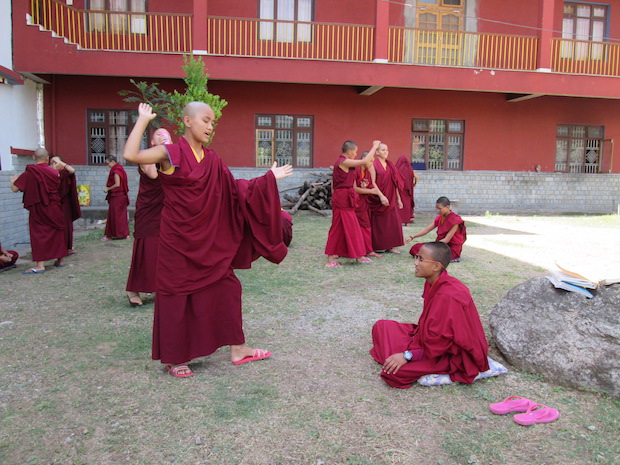
Tibetan Buddhist nuns debating outside the nunnery
The nuns at Tilokpur range in age from 9 to 88 and many are from very poor families. Most are Tibetan, but there are also nuns from the Indian Himalayan regions of Kinnaur, Arunachal Pradesh, Ladakh, Sikkim, and from the Mustang region of Nepal.
Tilokpur Nunnery was founded in the early 1960s by Mrs. Freda Bedi to assist nuns arriving in India after escaping from the Chinese occupation of Tibet. Freda Bedi (1911–1977) was a British nun ordained by the Karmapa. As Sister Palmo she became famous as the first Western woman to take ordination in Tibetan Buddhism.
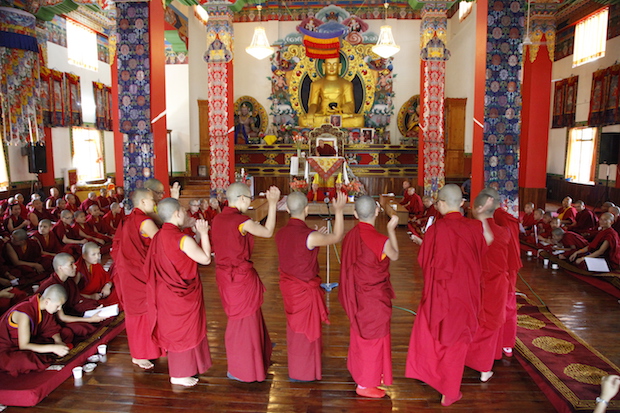
The nuns debate at the nunnery. Debate is a vital part of Tibetan monastic education. For the last two years, the nuns have participated in the Kagyu nuns’ debate session held every winter.
Establishing the nunnery was fraught with difficulties. According to a biography of Sister Palmo, Lady of Realisation, the nuns and Sister Palmo lived in grass huts as the nunnery was being built. The huts were accidentally destroyed by fire and, though Sister Palmo survived, she lost many precious Tibetan Buddhist texts that she was translating into English.
Sister Palmo wrote: “Our gonpa… the nunnery… building is something of an odyssey. We are clearing bricks and mud from the floor of the ruined fort on the top of the hill. Seems like a mountain. Tibetan and India labour with the nuns of all sizes, including me, carrying stones for an hour a day. Our little nuns carry pebbles.”
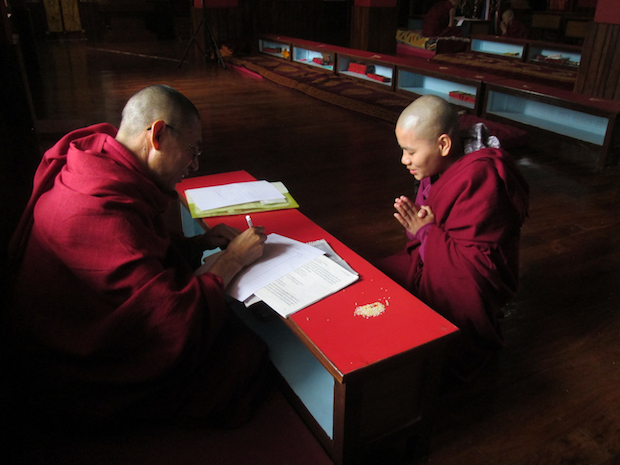
A nun studies with her teacher. The new academic year started in March and subjects include Buddhist philosophy, Tibetan, English, and math.
Tilokpur remains a relatively small nunnery and, in the past, the nuns there had been hampered in their abilities to develop and sustain themselves by the general lack of education.
The Tibetan Nuns Project began supporting the nunnery in 1992 and has helped Tilokpur Nunnery start regular classes in Tibetan, Buddhist philosophy, and English. The Tibetan Nuns Project has also helped the Tilokpur nuns purchase new books, including Buddhist philosophy and math textbooks.
The nunnery office is now also better equipped technically with a new computer, fax, and printer and two nuns have completed a month-long computer-training course. The nuns have also formed a management committee that is administering the internal activities of the nunnery. About 100 nuns at Tilokpur are sponsored through the Tibetan Nuns Project.
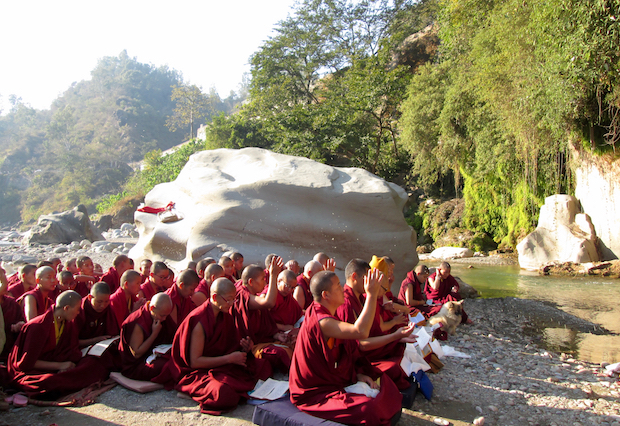
The nuns worship by the river near the cave of Tilopa.
Tilopa gave his most famous student Naropa a teaching called the “Six Words of Advice”, the text of which survives only in its Tibetan translation. This profound teaching, also known as Tilopa’s Six Nails, has been translated into English in both a short and longer form and goes as follows:
Don’t recall. Let go of what has passed.
Don’t imagine. Let go of what may come.
Don’t think. Let go of what is happening now.
Don’t examine. Don’t try to figure anything out.
Don’t control. Don’t try to make anything happen.
Rest. Relax, right now, and rest.
—trans. Ken McLeod
